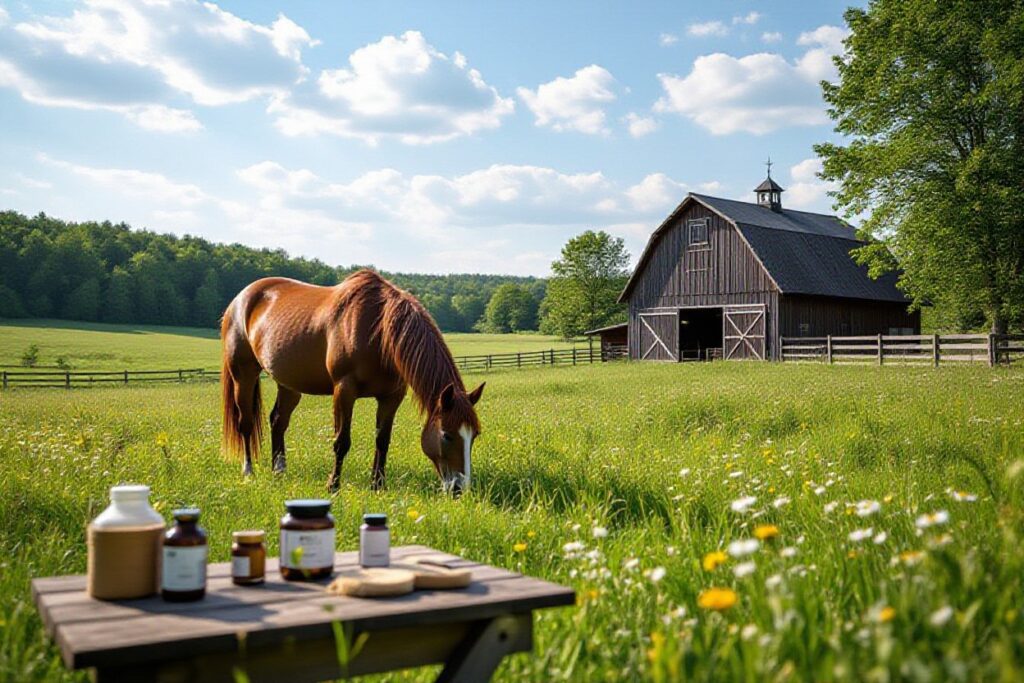Many equine health issues can be prevented by proper hydration in your horse. Without enough water, your horse may suffer from colic, fatigue, and other serious conditions. In this article, you will learn tips and tricks to ensure your horse stays properly hydrated and healthy. Bear in mind, you play a crucial role in keeping your horse watered and happy!

The Importance of Hydration in Horses
While horses are known for their strength and agility, they are also highly dependent on water for their overall well-being. As a responsible horse owner, it is crucial to understand the significance of hydration in your equine companion’s life.
Why Water is Essential for Equine Health
With more than half of a horse’s body weight consisting of water, it’s easy to see why hydration is paramount for their health. Water plays a vital role in various bodily functions, including digestion, circulation, regulation of body temperature, and nutrient absorption. Proper hydration is crucial for maintaining healthy organ function and overall performance in your horse.
Consequences of Dehydration in Horses
Any degree of dehydration in horses can have serious consequences. When a horse is not adequately hydrated, it can lead to issues such as colic, impaction, heat stress, and reduced performance. Dehydration can be life-threatening and should not be taken lightly.
Water is crucial for preventing conditions such as tying up and heat exhaustion in horses. Inadequate hydration can also impact a horse’s hooves and coat condition, leading to potential health issues. It’s important to always ensure your horse has access to clean, fresh water to prevent dehydration and its associated risks.
Factors Affecting Hydration in Horses
One of the key factors that can affect the hydration levels in your horse is the climate and environmental conditions they are exposed to. In hot weather or during intense physical activity, horses can sweat a significant amount, leading to dehydration if not properly replenished. Additionally, factors such as humidity, access to shade, and wind conditions can also impact how much water your horse needs. Knowing how these factors influence hydration levels can help you ensure your horse stays adequately hydrated.
Climate and Environmental Factors
- Hot weather can lead to increased sweating and dehydration.
- Humidity levels can affect how efficiently horses cool themselves through sweating.
Any changes in weather patterns or sudden shifts in temperature should prompt you to monitor your horse’s water intake closely.
An Environmental factor that plays a significant role in hydration is your horse’s age, breed, and individual variations. Different ages and breeds have unique hydration requirements, and individual variations in metabolism and activity levels can also impact how much water a specific horse needs. With young or senior horses, you may need to pay closer attention to their hydration levels, as they can be more susceptible to dehydration. Similarly, certain breeds may have predispositions to certain health conditions that could affect their hydration needs. It’s crucial to tailor your hydration management to your horse’s specific requirements.

Signs of Dehydration in Horses
Now, let’s investigate the important signs that can help you identify dehydration in your horse. Dehydration is a serious issue that can lead to health complications if not addressed promptly. By being observant and knowing what to look for, you can help ensure your horse stays healthy and hydrated.
Visible Indicators of Dehydration
Indicators of dehydration in horses can often be observed through physical signs. Some visible indicators include sunken eyes, tacky gums, loss of skin elasticity, and a prolonged capillary refill time when you press your finger against the gum. If you notice any of these symptoms in your horse, it may be time to take action and ensure they are getting an adequate amount of water.
Behavioral Changes Associated with Dehydration
Behavioral changes can also indicate dehydration in your horse. Behavioral signs of dehydration may include lethargy, reluctance to move, and decreased appetite. If you notice any unusual behaviors in your horse, it’s crucial to consider the possibility of dehydration and take steps to rehydrate them.
This is crucial because behavioral changes associated with dehydration can escalate quickly and lead to more severe health issues if left unchecked. By recognizing these signs early on, you can prevent further complications and ensure your horse’s well-being.
Providing Access to Clean Water
Once again, it cannot be emphasized enough how crucial access to clean water is for your horse’s health and well-being. Clean, fresh water should always be available to your horse, as they can consume a significant amount each day, especially active or lactating horses.
Water Quality and Safety Guidelines
An important aspect of providing access to clean water is ensuring its quality and safety. Contaminated or dirty water can lead to health issues such as colic or dehydration in horses. Make sure that water sources are free from debris, algae, or any potential toxins. Clean water buckets or troughs regularly, and consider using water filters or purifiers if necessary to maintain water quality.
Tips for Ensuring Adequate Water Intake
Tips for ensuring that your horse is drinking enough water include
- keeping water sources clean and fresh
- monitoring water intake daily
- offering warm water in colder weather
Perceiving any changes in your horse’s water consumption can indicate underlying health issues, so it’s important to stay observant.
The key to your horse’s health and hydration lies in providing access to clean, fresh water and monitoring their intake regularly. By following these guidelines and tips, you can ensure that your horse remains well-hydrated and healthy.

Encouraging Water Consumption
All horses need to drink an adequate amount of water to maintain their health and well-being. Hydration is crucial for digestion, temperature regulation, and overall bodily functions. Here are some tips on how you can encourage your horse to drink more water.
Making Water More Appealing to Horses
Appealing options to increase your horse’s water intake include adding a splash of apple juice or peppermint oil to the water bucket to give it a different flavor. You can also try offering a warm bucket of water in colder weather or a cool bucket in hot weather to entice your horse to drink more.
Strategies for Increasing Water Intake
The placement of water buckets can have a significant impact on how much your horse drinks. Make sure water is easily accessible and placed away from the manure pile or high-traffic areas to prevent contamination. Keeping water buckets clean and free of debris is crucial in encouraging your horse to drink regularly.
The amount of water your horse consumes can vary based on factors such as weather, diet, and activity level. If you notice a decrease in water consumption, monitor your horse closely and consult with your veterinarian to ensure your horse stays properly hydrated.

Monitoring Hydration Levels
After ensuring your horse has access to clean, fresh water at all times, it is crucial to monitor their hydration levels to prevent dehydration. There are a few key ways to do this effectively.
Measuring Water Intake and Output
With a measuring bucket, you can keep track of how much water your horse is consuming daily. The average horse should drink between 5 to 10 gallons of water per day, depending on their size and activity level. Additionally, monitoring their urine output can also provide valuable insights into their hydration status. Clear, light-colored urine indicates proper hydration, while dark urine may signal dehydration.
Recognizing Early Warning Signs of Dehydration
Measuring your horse’s hydration levels is crucial to catch early warning signs of dehydration. Be on the lookout for symptoms such as lethargy, sunken eyes, dry gums, decreased skin elasticity, and reduced performance levels. These signs can indicate that your horse is not drinking enough water and may be at risk of dehydration.
Understanding these early warning signs and taking prompt action by offering electrolytes or contacting your veterinarian can help prevent further complications and ensure your horse’s well-being.
To Wrap Up
Following this guide on the importance of hydration in horses and tips for keeping your horse watered, you now have a better understanding of how crucial it is to ensure your horse stays properly hydrated. Keep in mind, water is imperative for digestion, circulation, temperature regulation, and overall health in horses. By monitoring your horse’s water intake, providing fresh and clean water at all times, and adjusting water consumption during different seasons and activities, you can help your horse maintain optimal health and performance. Make hydration a priority in your horse care routine to keep your equine companion happy and healthy for years to come!
Q: What are the signs of dehydration in horses?
A: Signs of dehydration in horses include sunken eyes, tacky gums, a prolonged capillary refill time, loss of skin elasticity, reduced frequency of urination, and dark urine.
Q: How much water does a horse need to drink daily?
A: On average, a horse needs to drink 5-10 gallons of water per day, but this amount can vary based on factors such as weather, activity level, and size of the horse.
Q: How can I encourage my horse to drink more water?
A: You can encourage your horse to drink more water by offering fresh and clean water at all times, adding electrolytes to their water or feed, providing salt blocks, and monitoring their water intake regularly.
Q: What are some ways to check if my horse is properly hydrated?
A: You can check if your horse is properly hydrated by observing their overall attitude and behavior, monitoring their water intake, performing a skin tent test, and checking their mucous membrane color and moisture.
Q: Are there any tips for keeping my horse hydrated during hot weather or increased activity?
A: To keep your horse hydrated during hot weather or increased activity, you can offer water frequently, provide shaded areas for them to rest, offer electrolytes to replenish lost minerals, and consider wetting their feed to increase water consumption.










